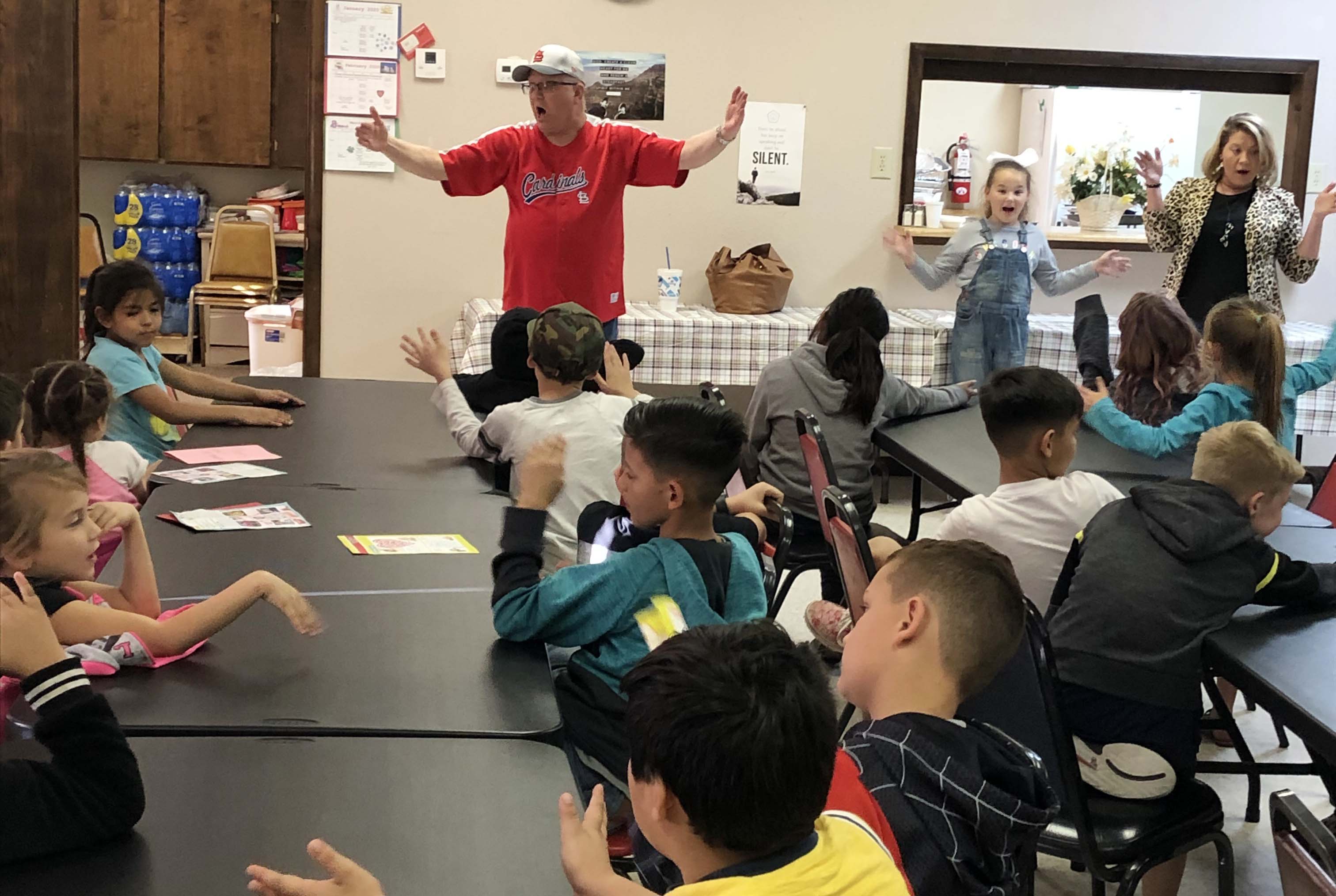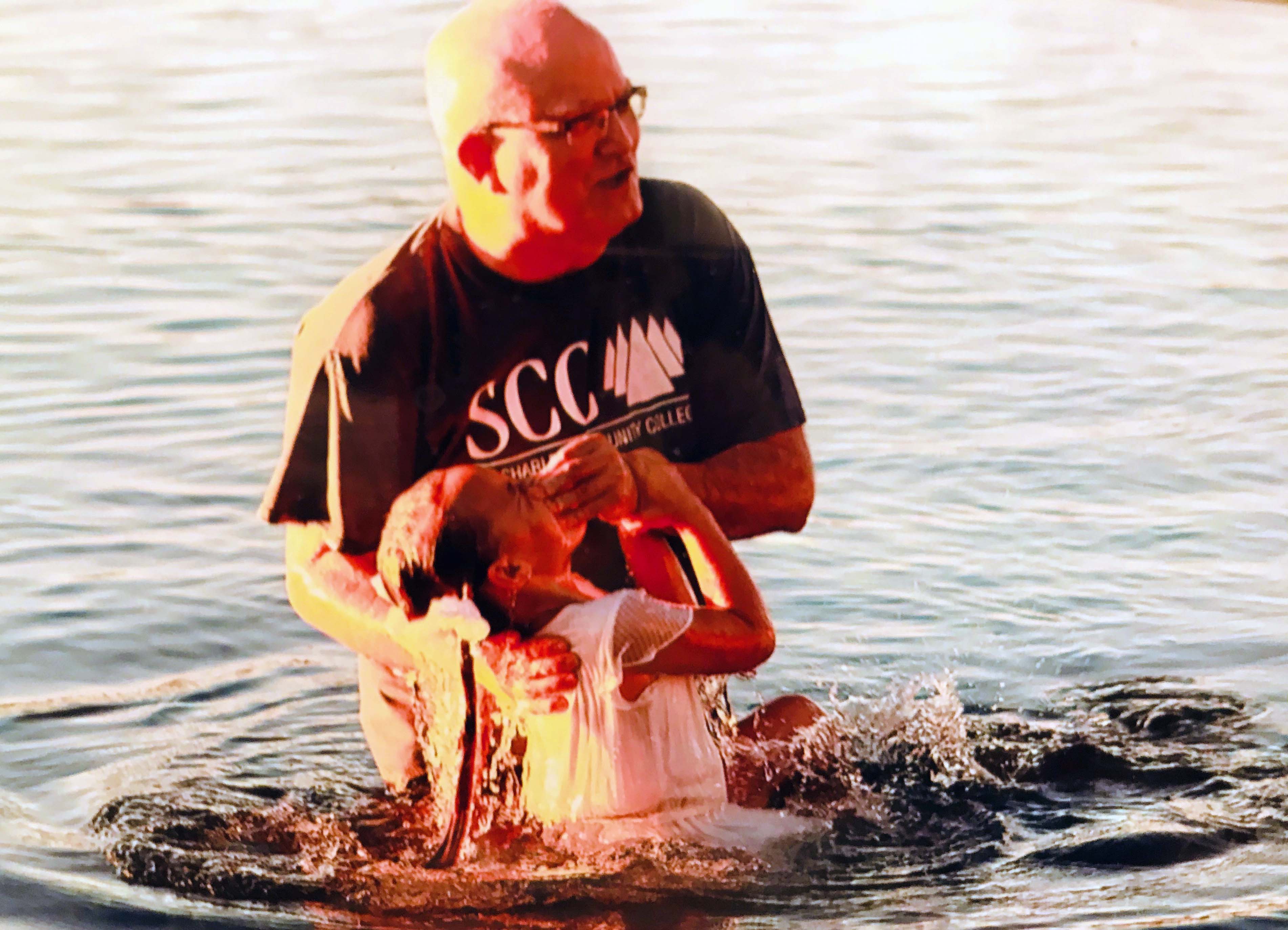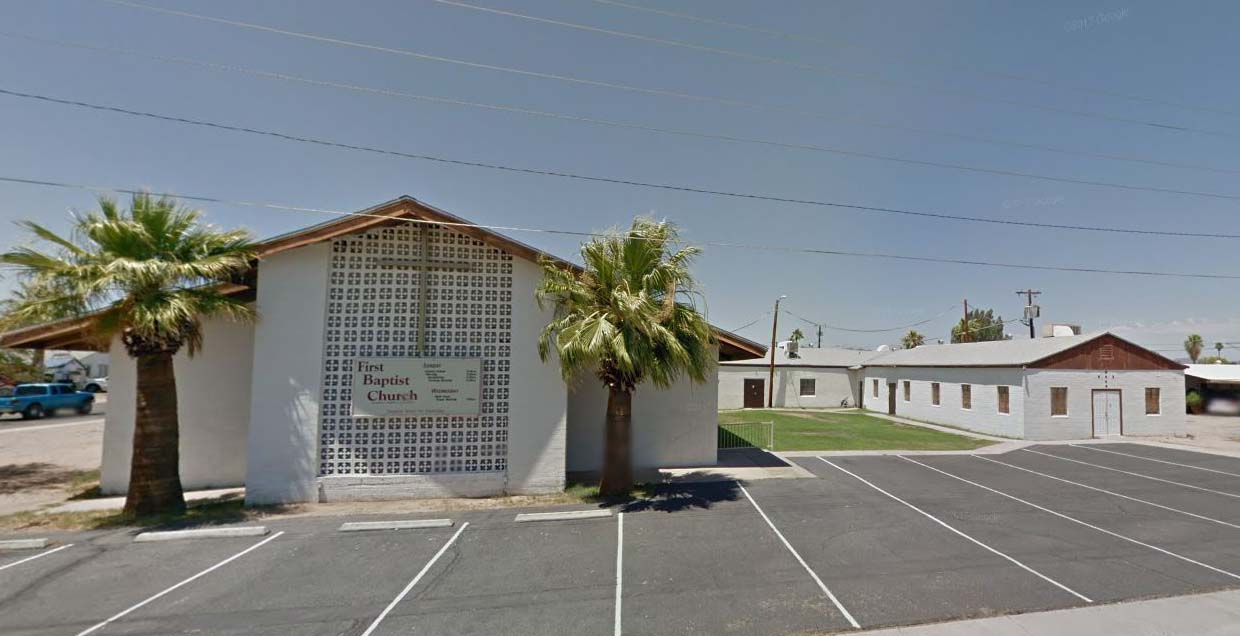
PARKER, Ariz. — “The Cooperative Program helped put food on the table, gas in the car, roof over our heads, and clothes on our backs,” says Glenn Swarthout, who planted churches as a Southern Baptist home missionary in the 1980s and ’90s in Nevada, Montana and California.
 The church he pastors now — First (Southern) Baptist Church of Parker, Ariz. — has a history of fostering new churches and reserves 1 percent of its offerings for its next church plant.
The church he pastors now — First (Southern) Baptist Church of Parker, Ariz. — has a history of fostering new churches and reserves 1 percent of its offerings for its next church plant.
Each of the churches Swarthout had a hand in starting gave 10 percent of undesignated offerings to missions through the Cooperative Program, he said. CP is Southern Baptists’ unified giving plan to fund local, national and international minitries.
“Southern Baptist missionaries might not make a lot, but they don’t have to worry about the money not coming,” the pastor said in explaining why giving through the Cooperative Program is so important to him.
“It’s the way Southern Baptists work together to spread the Gospel here in the West and throughout the world,” Swarthout said. “When I was planting churches in Wendover and Montello [Nevada], and in Conrad [Montana] and Big River [California], the Cooperative Program allowed me time for sowing seed, watering it and sometimes reaping a harvest.”
Big River was particularly fruitful.
“We probably baptized 80 folks in the Colorado River the 10 years I was in Big River,” the pastor continued. “That we were able to do that is because folks gave to [missions through] the Cooperative Program. It takes all of us working together.”
About 3,000 people live in the desert town of Parker, which partially is on the reservation of the Colorado River Indian Tribes in far western Arizona. The reservation is also the site of the Poston War Relocation Center, where 17,867 people living in the U.S. but of Japanese ancestry were housed from 1942 to ’45.
About 60 Anglos and Native Americans participate in Sunday morning worship services at First Parker, which since at least the early 1980s has allocated 10 percent for Cooperative Program missions as just the first part of its outreach.

— Baby diapers: “There’s a need for families that have more month than income,” the pastor said. “We’re going through a lot of sizes 5 and 6 right now. People hear about it on social media and word of mouth.”
— Hygiene items for the homeless: “Homeless people are all over Parker, year-round. Members take two or three [zippered] bags of things like soap, deodorant, toothbrush and toothpaste with them when they leave the church and pass them out as they see a need,” Swarthout said. “I don’t give money. If somebody’s hungry I will buy a meal, gasoline, a motel room. I seek to be a little prudent with what God has provided.”
— Samaritan’s Purse shoeboxes for overseas and Angel Tree Christmas gifts for adults in the county jail to give their children. “The children of parents who have made bad choices should not be punished,” the pastor said.
— “Fresh start” packs of items for foster kids.
“When a foster kid is taken in the night, they go with nothing, no clothes, no personal items, no nothing,” said Swarthout, a former foster parent who with his wife Penny adopted six youngsters who had been in “the system.” The first two had been living with grandparents. The other four were siblings in foster care.
As a result of its heightened awareness of the needs foster kids and foster parents have, First Baptist Church is prepared. It has items on hand — underwear, socks, toothbrush and much more — ready to give to each child they hear about who is going into a foster home.
“We’re also interested in helping struggling churches, like those that need construction or want a VBS, or some church with no transportation to help reach people,” Swarthout said. “We’re setting aside 1 percent for a new work start so when an opportunity comes we have something to start with.
“We want it to be a place where there is no church or no Southern Baptist work,” the pastor said. “There are some communities within 90 minutes of Parker that have no church.”

“The kids are starving for affection,” the pastor continued. “They want someone to care about them, and they bring their friends. Most every week there’s a new person.”
First Parker often uses water as an outreach tool, with members buying cases of bottled water, or making an extra offering so members can hand out water at high school football games and track events, or the town’s big dune buggy races during January.
Part of his responsibility is to equip First Parker members to do the work God has called the church to do, Swarthout said, citing Ephesians 4:12.
“To watch adults who don’t have a lot of confidence in themselves, they’ll start small, working with younger children,” the pastor said. “To watch their eyes light up, it’s breathtaking. It’s wonderful for a pastor like myself to see their joy in serving others.”
As they grow in their walk with the Lord, they find the niche God has carved out for them, the pastor said. It could be in Parker, or anywhere.
“We have missionaries speak as often as possible,” Swarthout said. “I’ll never turn down an opportunity for our church to see their Cooperative Program dollars at work.”
















